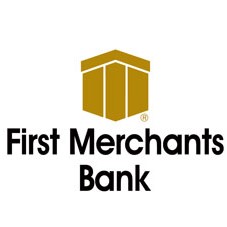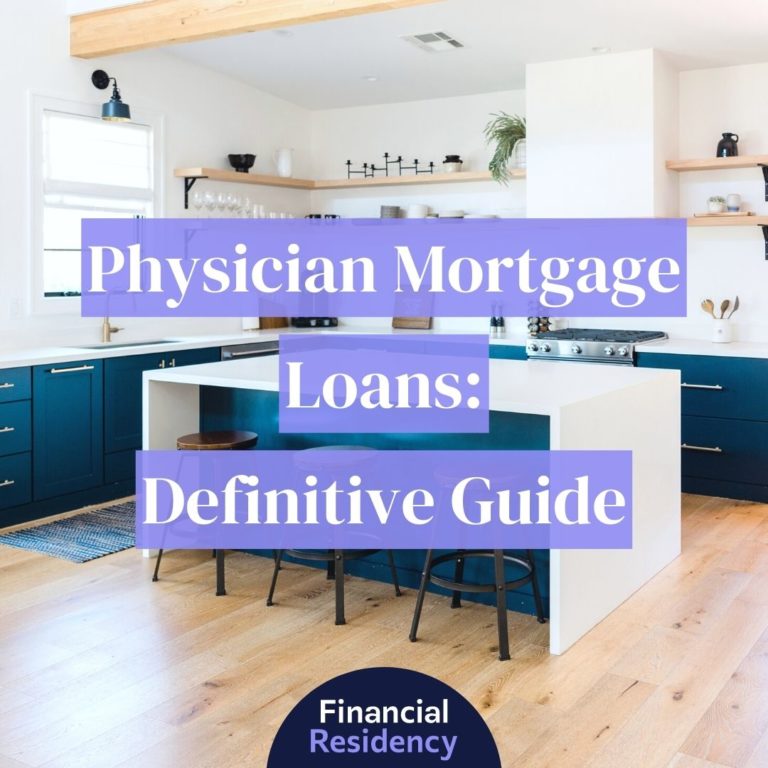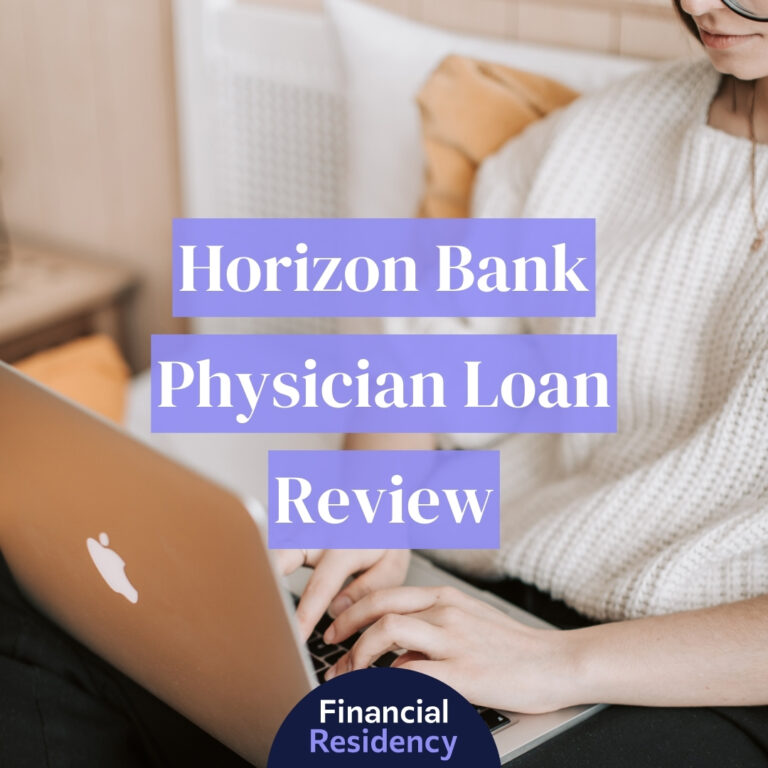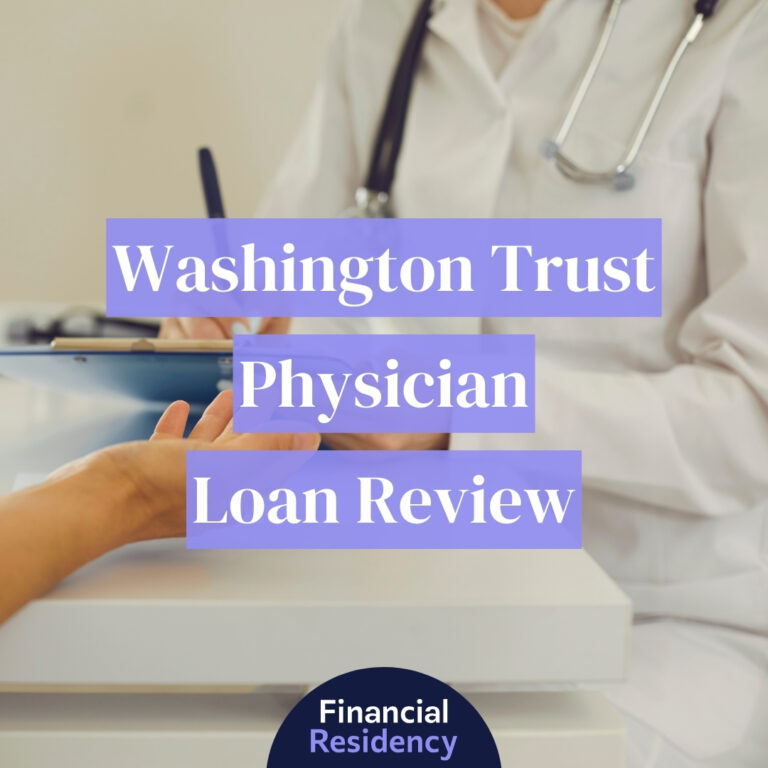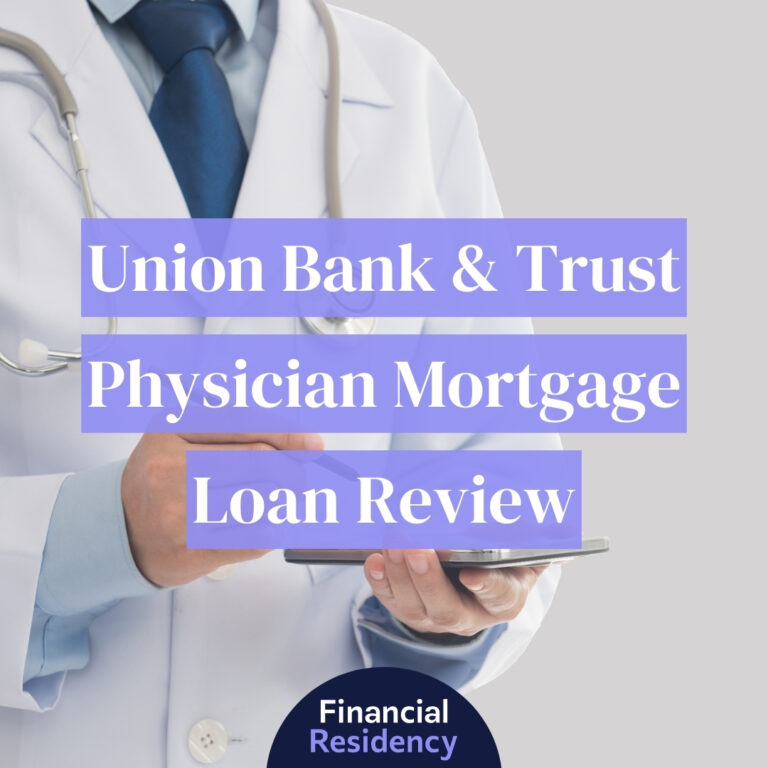The First Merchants Bank physician loan program provides home financing for physicians and other advanced-degree medical professionals.
Physician mortgage loans have more flexible terms than conventional loans, such as lower down payment or no down payment requirements, no PMI requirement, and more leniency toward undergraduate and medical school loans.
Without this type of specialty financing, many young doctors would be unable to secure financing for their first home purchase until several years into their medical career.
Keep reading to learn more about First Merchants’ loan program, including loan limits, credit approval requirements, and eligible medical designations.
About First Merchants Bank
First Merchants Bank (Member FDIC #4365) is Indiana’s second-largest, state-based financial institution. Headquartered in Muncie, First Merchants is a full-service financial institution that offers a full suite of consumer and commercial banking services, as well as wealth management.
It holds a large regional presence in Indiana, Michigan, and Illinois and manages $18 billion in total assets. It’s the nation’s 104th largest bank and has 118 banking centers.
- BBB score: A+
- CEO: Mark K. Hardwick
- JD Power score: NA
- Parent company: First Merchants Corporation (NASDAQ: FRME)
- Phone number: 1 (800) 205-3464
- Services offered: Small business, commercial, and consumer banking services, including checking accounts, savings accounts, debit cards, credit cards, personal consumer loans, auto loans, investment services, retirement planning, and home loans
First Merchants Bank Physician Loan Fast Facts
Here are a few fast facts about the First Merchants Bank physician mortgage loan program.
- Discounts: No current promotions
- Financing options: 100% loans up to $1 million, 89% financing up to $2 million
- Physician loan products: Fixed-rate and adjustable-rate mortgage products
- Maximum loan amount: $2 million
- Qualifying degrees: MD, DO, DDS, DMD, PharmD, DVM, DPM, OMS, DDS
- Private mortgage insurance: Not required
First Merchants Bank Physician Loan Qualifications
Physician loans are not a widely advertised product on the First Merchants’ website, or in general among financial institutions. For starters, most consumers are ineligible for this product. And beyond that, physician loans are custom-designed loans with custom underwriting, built around an individual’s personal finances.
While exceptions can be made on a case-by-case basis, here’s a general overview of First Merchants Bank qualifications for a doctor mortgage.
- Fair to good credit: 680 minimum FICO score
- Down payment: 0% to 11% depending on total loan amount
- Owner-occupied property: Primary residence single-family homes and condominiums
- Eligible degrees: Medical Doctors, Doctors of Osteopathy, Dentists, Pharmacists, Doctors of Veterinary Medicine, Doctors of Podiatric Medicine, Doctors of Oral & Maxillofacial Surgery, and Doctors of Dental Surgery
- Significant savings: Recommended but *no specified amount
- Verified income: Pay stubs, employment contract, or verification of terms of employment
*Commonly required for physician medical loans but no published guidelines on the First Merchants Bank website.
Discover The Best Lenders Answer just a few questions about your career, where you're buying, and how much you want to borrow. Our service will then show you the exact programs you're eligible for from vetted physician loan specialists who will guide you through every step of the process – obligation-free!
How to Apply
Here’s a breakdown of the steps involved in securing a physician home loan — or for the homebuying process in general.
Get Pre-Qualified
To begin with, you’ll need to get pre-qualified by the lender. You provide the bank with some basic financial and personal information, such as total income and total debts to assets. Then the bank will use this information, along with a soft credit pull, to let you know how much you are pre-qualified to borrow.
While this isn’t a binding figure — there’s no guarantee you’ll ultimately be approved for the pre-qualification sum — it’s still very helpful. It gives you an idea of how much money you will likely be able to borrow. Many borrowers begin looking at homes with a real estate agent after they get pre-qualified.
Prepare Your Documents and Review Your Credit Report
It’s helpful to gather the required paperwork upfront. While you can’t know everything that the bank will need, borrowers can anticipate many of these documents and have them ready to go and keep the process moving smoothly. Commonly needed paperwork includes:
- Proof of identity: Copy of driver’s license, passport, or other government-issued identification and Social Security number (SSN) card.
- Proof of income: Recent pay stubs (within the past 30 days), tax returns and W-2 forms (past 1-2 years), 1099 forms for any self-employed income, income history, future-dated employment contract, proof of any additional sources of income such as capital gains, child support, alimony, or royalty income.
- Proof of assets: Bank statements for checking and savings accounts (typically past 2-3 months), investment account statements (i.e., stocks, bonds, and IRA accounts), or titles to any real assets.
- Debt information: Information on outstanding debts such as auto loans, student loan debts, other mortgages, alimony, child support, or any other monthly payment
- Other documents: Divorce decrees, child support orders, copy of rental history, proof of recent bankruptcy discharge and schedule of creditors, letters of explanation for credit inquiries or credit report discrepancies, or letters of explanation for gift funds or any other unexplained assets.
In addition to preparing these documents, make sure to review your credit history. The lender will most certainly do a hard pull of your credit report. Look over a copy of the report for any inaccurate or unfamiliar entries.
Get Pre-Approved
At the pre-approval stage, the bank will tell you how much financing you are approved for. It’s called pre-approval because until closing on the sale of our home, terms could change or the financing could potentially fall through.
The vast majority of pre-approved home loans do go through — around 75% to 80% according to Quicken Loans and Rocket Mortgage puts the close rate around 90%. Generally, as long as your financial situation does not change (i.e. you don’t lose your job and there are no changes to your credit score) and you do not have any undisclosed debts, the loan will go through.
Upon pre-approval, you will get a letter informing you of the loan amount. A bank rep will speak with you regarding repayment terms, monthly mortgage payments, and other related questions.
Your pre-approval figure is good for 90 days, so it’s important you don’t complete the pre-approval process before you’re seriously looking and committed to moving into your new home.
If you have not begun touring homes with a real estate agent, start right away.
Confirm and Lock in Your Rate
Along with your pre-approval figure, your assigned loan officer will confirm your loan’s interest rate. You can ask any questions you have about payment options, ARM rate caps, or the loan amortization schedule.
For an adjustable-rate mortgage (ARM), after the initial fixed-rate period, the adjustable rate kicks in. This rate is usually tied to a specific index like the LIBOR (London InterBank Offered Rate).
This rate is locked in for 45 days, but it is subject to change based on numerous market, government, or other factors.
- Interest rate fluctuation in the market
- Change in Federal Reserve policies
- Change in employment status
- Change in start date for your future-dated employment contract (here the entirety of your financing may be more likely to fall through than just the interest rate)
- Change in income
- Change in credit score
- Change in debt-to-income ratio
- Change in loan-to-value ratio of your property (any discrepancy or change in appraisal values)
- Delay in closing on home loan whereby the locked-in rate expires
- Change in lender’s internal policies or underwriting criteria
- Loan-to-value ratio changes where there is a discrepancy or change in the appraised values of the property
Pros and Cons
Here’s an overview of the pros and cons of the First Merchants Bank program for physician home financing.
Pros
- 100% financing options — no money down for loans up to $1 million
- No private mortgage insurance (PMI) required — this standard requirement is waived, saving up to 2% on monthly payments
- Financing available for medical residents — eligible loan amounts may be lower though
- Flexible debt-to-income (DTI) ratio calculations — student loans not included, increasing overall eligibility amount
- Lenient credit score requirements — a minimum FICO credit score of 680 is required, one of the lowest minimums you’ll find for physician mortgages
Cons
- Limited range of eligible property types — only single-family homes and warranted condos (unwarranted in some exceptions). Townhomes, PUDs, or other structures are ineligible
- Open to a narrow range of medical professions — excludes Physician Assistants, Nurse Practitioners, Nurse Anesthetists, and other healthcare occupations commonly eligible for medical mortgages
First Merchants Bank Alternatives
In addition to First Merchants Bank, here are some of the top financial institutions offering doctor home loans.
KeyBank
KeyBank’s physician mortgage program offers up to $3.5 million for the purchase or refinance of first or second homes, and properties must be owner-occupied condos, townhomes, or single-family houses.
Qualified borrowers can receive 100% financing for loans up to $1 million. A down payment of at least 10% is required for additional financing. Participation is open to:
- Medical Doctors (MD)
- Doctors of Osteopathy (DO)
- Doctors of Podiatric Medicine (DPM)
- Doctors of Dental Surgery (DDS)
- Oral & Maxillofacial Surgeons (OMS)
- Dentists (DDM)
Residents or fellows in these fields are also eligible for home loans at reduced financing amounts.
Flagstar Bank
Flagstar is a medium-sized, regional bank that offers nationwide convenience. It has over 400 branches in the Midwest and Northeast regions, robust online banking, and originates home loans across all 50 states. Flagstar Bank’s physician home loan program offers financing of up to $1.5 million. Consumers with excellent credit (usually at least 720) can get up to $1 million in financing with no money down, and Flagstar’s program has no PMI requirements.
Its physician mortgage program is the most inclusive one in the country in terms of eligible professions. A broad range of non-MD and non-medical occupations can qualify, and H-1B visa holders in qualifying fields can also obtain financing.
First National Bank
First National Bank (FNB) provides physician home loan financing to qualifying medical professionals. FNB offers fixed-rate and adjustable-rate financing for mortgages of up to $1.5 million. Zero-money down financing is available for home loans up to $1 million.
Additionally, First National provides financing for primary residences (90% to 100%) or secondary residences (up to 80%) such as cabins or vacation homes.
The physician program is open to doctors as well as interns, residents, and fellows.
BMO Bank
BMO Bank (formerly known as BMO Harris) is a full-service bank and mortgage lender that offers a nationwide physician loan program for early-career doctors. They offer up to $2 million in total financing, including 100% financing for up to $1 million.
As an added bonus, BMO offers a $500 discount on closing costs for borrowers who set up auto payment for their mortgage from a qualified checking account.
The bank does take into consideration your total student loan debt when determining your DTI ratio and loan eligibility, but BMO does look at it more favorably than other forms of debt (i.e., unsecured credit card). BMO’s physician program is open to:
- Medical Doctors (MD)
- Doctors of Osteopathy (DO)
- Dentists or Doctors of Dental Medicine (DMD)
- Doctors of Dental Surgery (DDS)
Other similar occupations, such as OMS, would likely also qualify.
Frequently Asked Questions
Here are some of the most common FAQs that readers have about physician home loans and First Merchants Bank.
Is First Merchants Bank FDIC insured?
Yes, First Merchants Bank is a member FDIC-insured institution and has been since 1934. First Merchants Bank is a state-chartered bank, and on the federal level, it’s regulated by two bodies. Its primary regulator is the Federal Deposit Insurance Corporation and its secondary regulator is the Consumer Financial Protection Bureau (CFPB).
Is it better to use a mortgage lender or a bank?
It depends. A mortgage lender specializes exclusively in real estate financing and can offer a much wider range of products. Typically they have more eligible lending criteria and faster loan approval timelines.
Banks have fewer lending products generally, more stringent requirements (which are relaxed for physician mortgages), and longer underwriting, but they can provide better customer support (in-person), offer better rates, and possibly extend deals to existing account holders (i.e. saving points off your interest rate).
When looking for home financing, it’s a good idea to compare rates from multiple banks, credit unions, and lenders.
Is a physician loan a conventional loan?
A physician loan can share many aspects of a conventional loan — fixed-rate financing, 5% down payment, similar credit score requirements — but it is not a conventional loan product.
Physician loans can be fixed-rate or adjustable-rate, may require zero money down, and almost always exclude physician debt (student loans) from debt-to-income ratio calculations.
It’s an unconventional loan to meet high-earning, good-risk borrowers with a high amount of debt.
Are professional mortgages worth it?
Often yes — if it’s the only path to home ownership as you are beginning your new career as a physician and have significant medical debt. Young doctors who are around 30 may not want to wait until they are in their late 30s to early 40s — with student loans paid down — to begin home ownership when they are then able to qualify for more conventional financing.
For doctors with minimal or no student loan debt who can qualify for other traditional financing, these loan products may offer better borrower terms. However, these products may cap the maximum borrowing limit to well below $1 million or whatever you wish to spend on your new home.
It will be an individual decision for each doctor based on their debt load, salary, credit score, and housing needs.
